In order to improve, one must learn and the best place to find quality learning material for the working professional or freelancer still remains in the written word. With so much unverified material on the internet today, I prefer to gain knowledge from a good book wtitten by an experienced authority on his subject. Gathered here are 7 exceptional books that will make you a better web designer and programmer.
1. Designing with Web Standards (Jeffrey Zeldman)
The first book any person serious about web design should read. In this excellent and easy to read book you’ll learn how to build websites using the holy trinity of modern web design – semantic (X)HTML markup, CSS layout, and unobtrusive scripting based on JavaScript and the DOM.
After putting these practices into use, your websites will be easier to code, easier to maintain, easier to find, and compatible with modern (and future) browsers.
2. Don’t Make Me Think: A Common Sense Approach to Web Usability (Steve Krug)
If you haven’t read Don’t Make Me Think, stop what you are doing, Drive to your local bookstore (don’t order it online, that will take to long), spend the rest of the day reading it. This fantastic book is short, easy to read, engaging, and eye-opening. It’s full of “why didn’t I think of that already” advice and insights. Almost everything discussed is common sense advice, yet I guarantee you you will benefit from the material.
Reading Don’t Make me Think and Designing with Web Standards alone will do more for your career as a web designer than anything else.
3. Inbound Marketing: Get Found Using Google, Social Media, and Blogs (Brian Halligan and Dharmesh Shah)
Inbound Marketing is an excellent guide to doing business in the new world of social media and online marketing. The book succinctly explains how to turn your website and blog into a marketing hub, providing your visitors and customers with remarkable content and generating buzz around the net. Littered throughout are excellent suggestions and step by step instructions on how to leverage social media to bring in new customers. Each chapter ends with a Track Your Progress section that describes the important metrics you should be tracking with your analytics program.
Even though it’s written for a less technical audience than the web design community, you will find plenty of new ideas and insights littered throughout this fantastic guide to online marketing.
4. CSS: The Definitive Guide (Eric A. Meyer)
The only CSS resource you need. Coming from an expert like Eric Meyer, you know you’re in good hands. No other book comes close to the detail in which this book describes every aspect of css. Don’t waste your time with other CSS books, this is the only one you need.
The companion to this book, CSS Pocket Reference is a very handy addition to its big brother. It’s perfect for when you just want to look up the syntax for a particular selector.
5. Stop Stealing Sheep & Find Out How Type Works (Erik Spiekermann, E.M Ginger)
A great intro to the intimidating and vast world of typography. Learn how to choose and use type properly from experts in the field.
This is another compact but powerful tome of juicy goodness.
6. PHP 6 and MySQL 5 for Dynamic Web Sites: Visual QuickPro Guide (Larry Ullman)
Coming from a Java background where good books on the subject abound, I was, and still am, disappointed by the lack of good literature on PHP. This book does an adequate job of introducing the language, but it’s aimed at beginner programmers. I’ve yet to find a good PHP reference for experienced programmers, but I couldn’t leave this book out. It contains some excellent information and tips if you’re willing to dig for it.
PHP in a nutshell is also decent source, but outdated and in need of a revision. If you know of a good PHP reference please let me know in the comments.
7. JavaScript: The Definitive Guide (David Flanagan)
My first stop when faced with a JavaScript puzzler. Written by a well-known and regarded Java author, this reference is comprehensive and definitive, just like the title says.
8. The Pragmatic Programmer: From Journeyman to Master (Andrew Hunt and David Thomas)
While not so much a web design book, this book changed the way I program and approach programming projects in general. It’s very much geared toward corporate programmers (which I was when I first read it), but it is by far one of the best and most influential programming books I’ve read.
There are so many good tips and best practices in this book that I couldn’t leave it out. Many programming shops today will not hire any person who hasn’t read this excellent book and I don’t blame them.
Honarable Mentions and Non-Web Design Books Worth Mentioning

The Elements of Typographic Style (Robert Bringhurst)
Mostly geared toward print designers, this beautifully bound and printed book is, in my opinion, overrated. There is some useful information about typographic scale and a few other nuggets of wisdom, but not the holy grail others make it out to be, at least not for web typography.

Required reading for any object oriented programmer.

Mastering Regular Expressions (Jeffrey E.F. Friedl)
A Comprehensive reference to this complex and absolutely essential subject.

Another object-oriented bible. This highly-regarded text walks through the process of changing existing code (refactoring) safely. It also attempts to name and describe many common “refactorings” and provide step by step procedures for doing so.

Pragmatic Project Automation: How to Build, Deploy, and Monitor Java Apps (Mike Clark)
Pertinent to any programmer. Save time by automating everything. I use the principles learned in this book to make deploying my wordpress websites a one button push process.

Bash Cookbook: Solutions and Examples for Bash Users (Carl Albing, JP Vossen, Cameron Newham)
Great source of command line scripts and goodies.
What Are Your Favorite Books?
Let me know which books I’ve left out in the comments below.
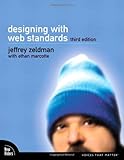
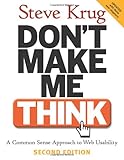
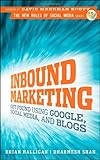

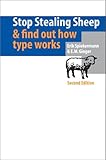
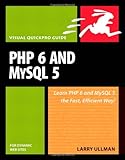
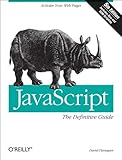
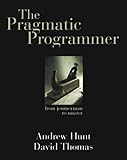


 21 Simple Ways to Generate More Business with Your Website
21 Simple Ways to Generate More Business with Your Website
